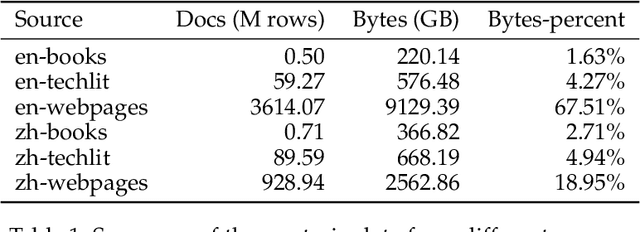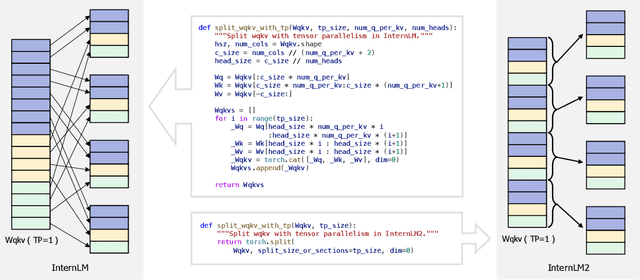Chenya Gu
FoundaBench: Evaluating Chinese Fundamental Knowledge Capabilities of Large Language Models
Apr 29, 2024Abstract:In the burgeoning field of large language models (LLMs), the assessment of fundamental knowledge remains a critical challenge, particularly for models tailored to Chinese language and culture. This paper introduces FoundaBench, a pioneering benchmark designed to rigorously evaluate the fundamental knowledge capabilities of Chinese LLMs. FoundaBench encompasses a diverse array of 3354 multiple-choice questions across common sense and K-12 educational subjects, meticulously curated to reflect the breadth and depth of everyday and academic knowledge. We present an extensive evaluation of 12 state-of-the-art LLMs using FoundaBench, employing both traditional assessment methods and our CircularEval protocol to mitigate potential biases in model responses. Our results highlight the superior performance of models pre-trained on Chinese corpora, and reveal a significant disparity between models' reasoning and memory recall capabilities. The insights gleaned from FoundaBench evaluations set a new standard for understanding the fundamental knowledge of LLMs, providing a robust framework for future advancements in the field.
InternLM2 Technical Report
Mar 26, 2024



Abstract:The evolution of Large Language Models (LLMs) like ChatGPT and GPT-4 has sparked discussions on the advent of Artificial General Intelligence (AGI). However, replicating such advancements in open-source models has been challenging. This paper introduces InternLM2, an open-source LLM that outperforms its predecessors in comprehensive evaluations across 6 dimensions and 30 benchmarks, long-context modeling, and open-ended subjective evaluations through innovative pre-training and optimization techniques. The pre-training process of InternLM2 is meticulously detailed, highlighting the preparation of diverse data types including text, code, and long-context data. InternLM2 efficiently captures long-term dependencies, initially trained on 4k tokens before advancing to 32k tokens in pre-training and fine-tuning stages, exhibiting remarkable performance on the 200k ``Needle-in-a-Haystack" test. InternLM2 is further aligned using Supervised Fine-Tuning (SFT) and a novel Conditional Online Reinforcement Learning from Human Feedback (COOL RLHF) strategy that addresses conflicting human preferences and reward hacking. By releasing InternLM2 models in different training stages and model sizes, we provide the community with insights into the model's evolution.
Benchmarking Chinese Commonsense Reasoning of LLMs: From Chinese-Specifics to Reasoning-Memorization Correlations
Mar 21, 2024Abstract:We introduce CHARM, the first benchmark for comprehensively and in-depth evaluating the commonsense reasoning ability of large language models (LLMs) in Chinese, which covers both globally known and Chinese-specific commonsense. We evaluated 7 English and 12 Chinese-oriented LLMs on CHARM, employing 5 representative prompt strategies for improving LLMs' reasoning ability, such as Chain-of-Thought. Our findings indicate that the LLM's language orientation and the task's domain influence the effectiveness of the prompt strategy, which enriches previous research findings. We built closely-interconnected reasoning and memorization tasks, and found that some LLMs struggle with memorizing Chinese commonsense, affecting their reasoning ability, while others show differences in reasoning despite similar memorization performance. We also evaluated the LLMs' memorization-independent reasoning abilities and analyzed the typical errors. Our study precisely identified the LLMs' strengths and weaknesses, providing the clear direction for optimization. It can also serve as a reference for studies in other fields. We will release CHARM at https://github.com/opendatalab/CHARM .
 Add to Chrome
Add to Chrome Add to Firefox
Add to Firefox Add to Edge
Add to Edge